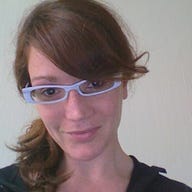Eating too much salt? This smart spatula tells your phone when to cut back

Video: MIT's AlterEgo responds to 'silent speech' commands
AR + VR
It looks like an ordinary wooden spatula -- like the one you may have in your kitchen.
But it contains electrodes, a temperature sensor, and a connector. Together, they transform it into an intelligent device, capable of monitoring salt used in cooking and interpreting your mealtime habits, with the aim of encouraging you to eat more healthily.
The device, called Cookit, has been jointly developed by the Eurecat Catalan technology center, working with partners from the EU-funded Do Change project.
"The great innovation of this spatula is that it allows you to control sodium usage while cooking and stirring food," Eurecat researcher Joan Garcia Paredes tells ZDNet.
"The process is a little slow, especially the first time," he says, but the measurements are reliable, down to a sensitivity of 0.1g/l.
Most people consume too much salt: on average 9g to 12g per day, or about twice the recommended maximum intake.
The device comes with a supporting smartphone application that lets the spatula's owner visualize the data, set an alarm when the values are too high, and even send relevant information to a doctor.
This app links to a "cloud-based behavior-change service" developed by Dutch partner Omni, encouraging users to step out of their comfort zone and try to develop new habits. It promotes diverse types of advice delivered by messages and push notifications.
See also: Smart office technology: What's working, what's failing, and what users want out of it
Cookit, originally designed for cardiovascular patients, is currently being tested with real users in Badalona, next to Barcelona, and can be beneficial for everyone, says Garcia Paredes. Omni has filed a patent for the whole concept.
Primary-care physician Dr Xavier Peral thinks the spatula is a good idea for hypertension patients who are following low-salt diets, and for patients with hypernatremia, a common electrolyte problem defined as a high sodium-ion level in the blood.
It could also be of use in nursing home care, or spas, he adds.
In addition to the spatula, Eurecat has also unveiled smallest wireless digital electrocardiograph on the market. iCardio can deliver an electrocardiogram in two minutes and sends the results to a doctor for diagnosis.
The device is currently being tested and awaiting certification to be recognized as a medical device.
Physician and physiotherapist Dr Ramon Gassó from Barcelona thinks the size and autonomy of the device will prove a real asset, because it will be made available in situations where doctors need a quick diagnosis to plan treatment.
Cookit comes with a supporting smartphone application that lets the spatula's owner visualize the data.
Previous and related coverage
This Android, iOS virtual tailor wants to cut out millions of online clothing returns
ISizeYou is a virtual tailor app that helps you buy the right size of clothes online first time.
How do you turn these islands into a living IoT lab? Just add 500,000 sensors
The TV and radio masts already exist, so adding IoT antennas is a logical step for Spain's Balearic Islands
AI bias in hiring, loans, dating? This search tool aims to create a level playing field
Researchers are developing algorithm that doesn't let automated systems perpetuate human discrimination.
How a remote-controlled robotic pill could be the next breakthrough in digital health(TechRepublic)
We caught up with Israeli professor David Zarrouk to hear about the research he's doing to create a low-power robot for physicians to use for diagnosing and treating intestinal problems.
Health care groups to use blockchain to improve provider data (CNET)
Five national groups, including UnitedHealthcare and Optum, are launching a pilot program to see if blockchain can help keep data accurate.